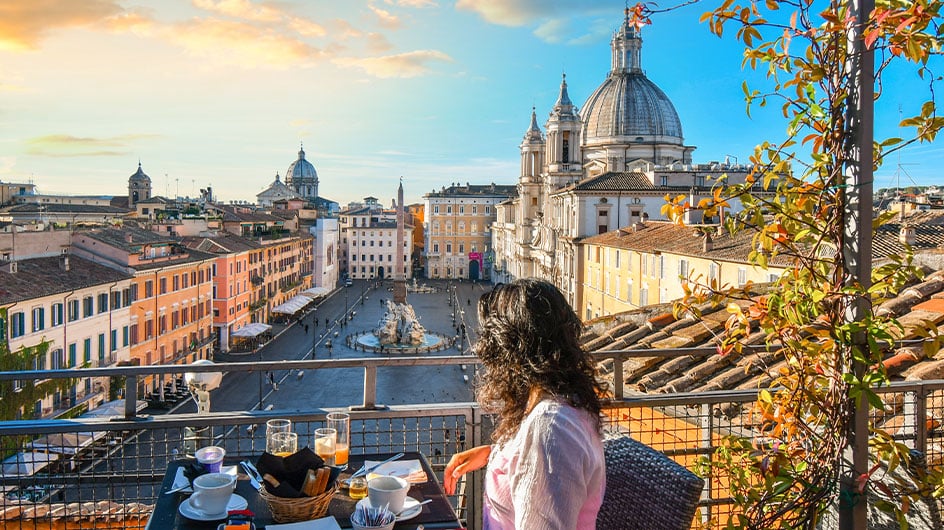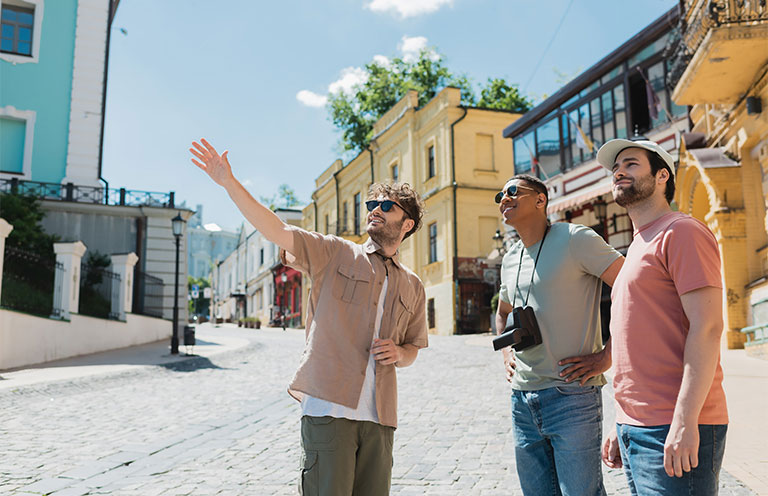Why Offseason Travel Could Be Your New Favorite Way to Explore
From saving big to skipping the crowds, offseason travel offers surprising advantages—if you know what to expect

Travel stressors such as high prices, crowded airports, and long lines for attractions can often be avoided with one simple shift: traveling during the offseason.
The offseason varies depending on the destination. For instance, in Italy, it might mean the quieter winter months, while in the Caribbean, it’s typically during late summer and early fall. Traveling during these less-crowded times offers a chance to experience places more like a local—without the competition for hotel reservations, excursion spots, or tables at the best restaurants.
But before you book your trip, it’s worth weighing the pros and cons of offseason travel to see if it’s the right kind of adventure for you.

Advantages of offseason travel
Save on flights, hotels, and excursions
One of the biggest perks of offseason travel is savings. Flights, hotels, tours, and even restaurant meals come at a fraction of peak-season prices. Even if you’ve budgeted for a peak-season trip, your money will go much further in the offseason. You may even decide to splurge on a luxury hotel, paying what you’d expect for a mid-range stay during busier months.
Skip the crowds
No matter how far in advance you book your tickets to landmarks such as the Eiffel Tower or the Colosseum in summer, other travelers will have the same idea. In peak summer months—June, July, and August—you’ll be sharing those sites with throngs of other tourists. That means long lines, sold-out time slots, and packed viewing areas that can eat up your time, flexibility, and patience. Offseason travel, on the other hand, allows you to enjoy must-see attractions at your own pace—without battling crowds or adhering to a minute-by-minute itinerary.
Enjoy more authentic travel experiences
When the tourist season slows down, destinations tend to return to their natural rhythms. Locals reclaim their neighborhoods, prices normalize, and interactions become more genuine. Fewer crowds also often mean more space and time to capture great photos without people obstructing your composition. It all adds up to a chance to experience a place not just as a visitor, but as locals do.

Disadvantages of offseason travel
Unpredictable weather
One of the biggest trade-offs of offseason travel is the weather. From the rainy season in Costa Rica to chilly days in coastal Maine, weather during the offseason can often be unpredictable. Depending on where you’re headed, that might mean more rain, cooler temperatures, or conditions that limit certain activities. Be prepared to stay flexible with your plans, and always check regional climate trends before booking to avoid unwelcome surprises.
Limited hours and closures
When tourism slows, some museums, restaurants, and shops may close for the season or reduce their hours. This is especially true in beach towns or seasonal destinations such as coastal New England or parts of the Mediterranean. Before you go, it’s wise to check what will be open—either by visiting the local tourism board’s website or calling ahead.
Reduced transportation options
In some regions, fewer tourists can mean fewer transportation services. Trains might run less frequently, ferries may not operate daily, and some airlines may scale back their flight schedules. To avoid last-minute surprises, plan your trip in advance, and double-check all travel logistics before you go.

Is offseason travel worth it?
While offseason travel has plenty of perks, deciding to vacation outside a destination’s peak season ultimately depends on your travel preferences.
If you value quiet sightseeing, lower prices, and little to no tourist crowds, the offseason could be the perfect time to explore. But if you’re after ideal weather, full access to attractions, and a lively atmosphere, peak season may be a better fit.
For a happy medium, consider traveling during shoulder season—the sweet spot just before or after peak months in a destination’s tourism calendar. You'll often find lighter crowds, lower prices, more favorable weather, and most attractions still open.
